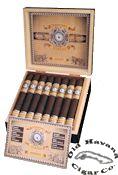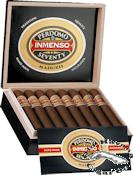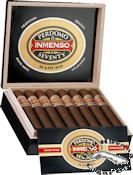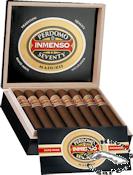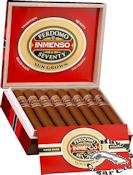About Perdomo Cigars
Our story traces its roots to San Jose de las Lajas, Cuba, an agricultural and industrial municipality located 27 kilometers southeast of Havana, where Silvio Perdomo was raised. He apprenticed first at Cuesta y Cia. in the early 1930’s before leaving to practice his art at the H. Upmann factory from 1937 to 1945; and at the famed Partagas factory until 1959. It is also where his son, Nick Perdomo, Sr. was born and began his apprenticeship in 1948 at the Marin & Trujillo factory before earning accolades for his craftsmanship and making his own way to join his father at Partagas. “Things were going so well then, my father and I were just beginning to establish ourselves and obtain recognition for our work,” said Nick, Sr., an imposing wrecking ball of a man with a soft voice and a heart as big as his frame. “But then Castro destroyed everything - our country, our lives and our freedom.”
A quiet and peaceful man steadfastly opposed to Castro and the communist revolution, Silvio Perdomo was soon arrested in his own home and quickly tried and incarcerated in the notorious Isle of Pines prison where he endured his harshest treatment. Three years later he was transferred to La Cabana, a murky 18th century fortress overlooking Havana Bay. For the next 12 excruciating years, Silvio suffered through squalid conditions, torture and near-starvation at La Cabana and four other Cuban prisons.
Nick, Sr. was also a target of the wrath and violence inherent in establishing Castro’s “New Cuba”. Ambushed by pro-Castro guerillas, he was shot and critically wounded - within view of the very home his father Silvio was arrested and abducted from. “The political views of my family and I were very anti-communist , and (then former president Fulgencio) Batista used to visit the factories frequently,” Nick, Sr. recalled. “Batista didn’t smoke cigars but, because it’s one of Cuba’s main exports, he was very interested in what my father and I were doing with the different cigar shapes and styles we were experimenting with.” Nick, Sr. then laughs gently, shaking his head. “The communists must’ve thought I was a close friend of Batista. I’ve still got two bullets inside of me to prove it.” Hunted while being cared for in the home of a close friend, Nick, Sr. managed to escape Cuba before fully recovering from his wounds through a sponsorship hastily arranged with the Catholic Church. His arrival in Washington, D.C. yielded a startling discovery. “I knew the streets weren’t paved with gold, but my sponsors had no place for me. Nowhere to live or eat. Nick Sr. now pauses and his eyelids narrow. “But I thank God for coming to America. It has given my family the precious opportunities of freedom they never would have had in Cuba.” Nick, Sr. now points at a large American flag he has on the wall of his office, “When I raised my right hand before this beautiful flag it was one of the proudest moments of my life. Even though I’m proud of my Cuban heritage, I bleed American red, white and blue.”
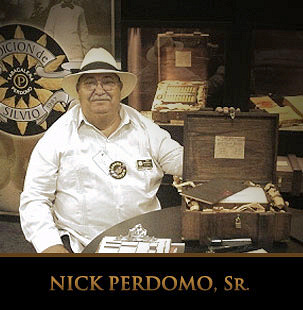

 Click HERE to Learn More about... Perdomo - Bourbon Barrel Aged Maduro Robusto cigars.
Click HERE to Learn More about... Perdomo - Bourbon Barrel Aged Maduro Robusto cigars.


 Click HERE to Learn More about... Perdomo - Inmenso Seventy Maduro Churchill (7x70) cigars.
Click HERE to Learn More about... Perdomo - Inmenso Seventy Maduro Churchill (7x70) cigars.


 Click HERE to Learn More about... Perdomo - inmenso Seventy Maduro Epicure (6x70) cigars.
Click HERE to Learn More about... Perdomo - inmenso Seventy Maduro Epicure (6x70) cigars.


 Click HERE to Learn More about... Perdomo - Inmenso Seventy Maduro Robusto (5x70) cigars.
Click HERE to Learn More about... Perdomo - Inmenso Seventy Maduro Robusto (5x70) cigars.


 Click HERE to Learn More about... Perdomo - Inmenso Seventy Sun Grown Churchill (7x70) cigars.
Click HERE to Learn More about... Perdomo - Inmenso Seventy Sun Grown Churchill (7x70) cigars.


